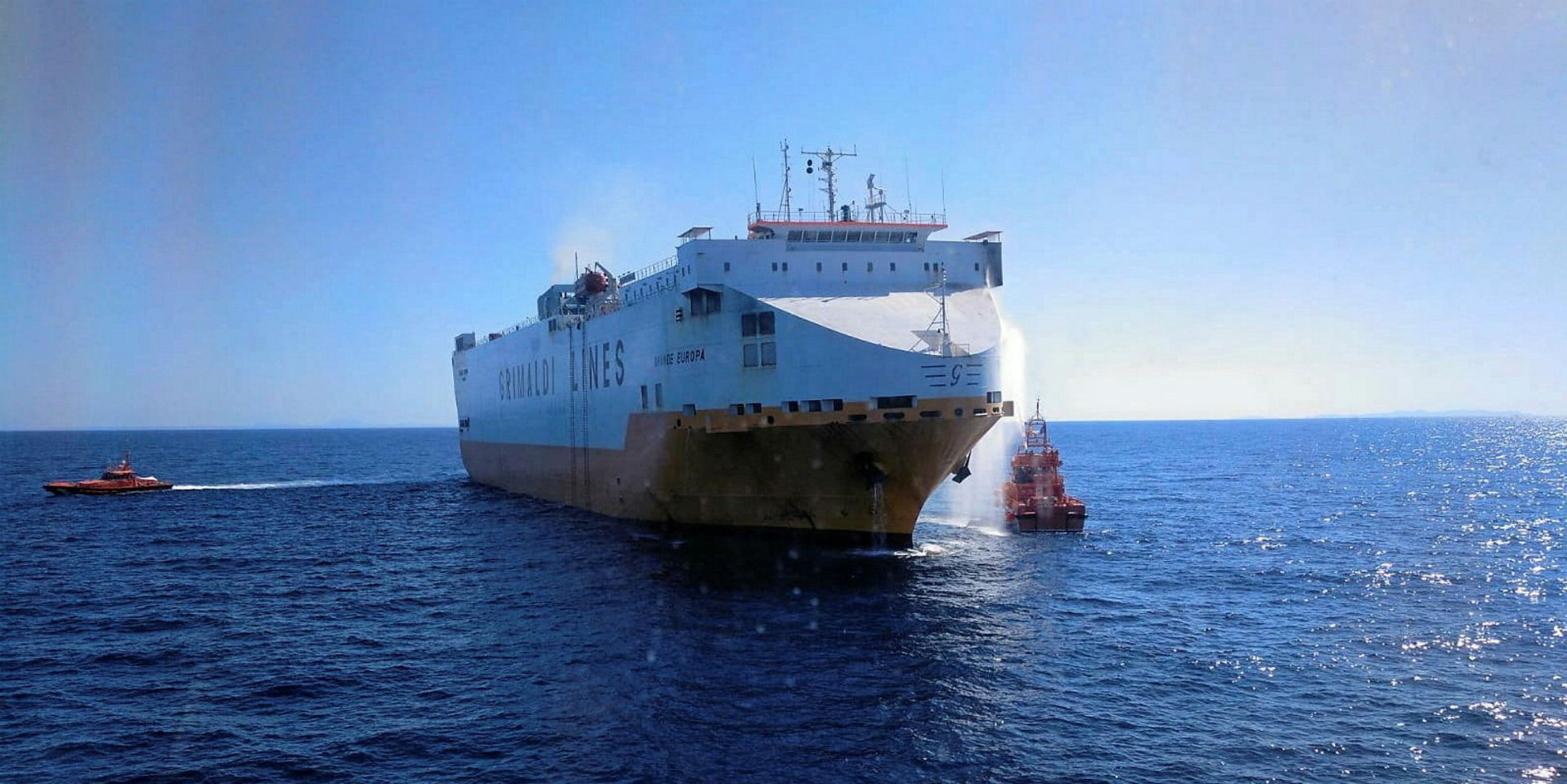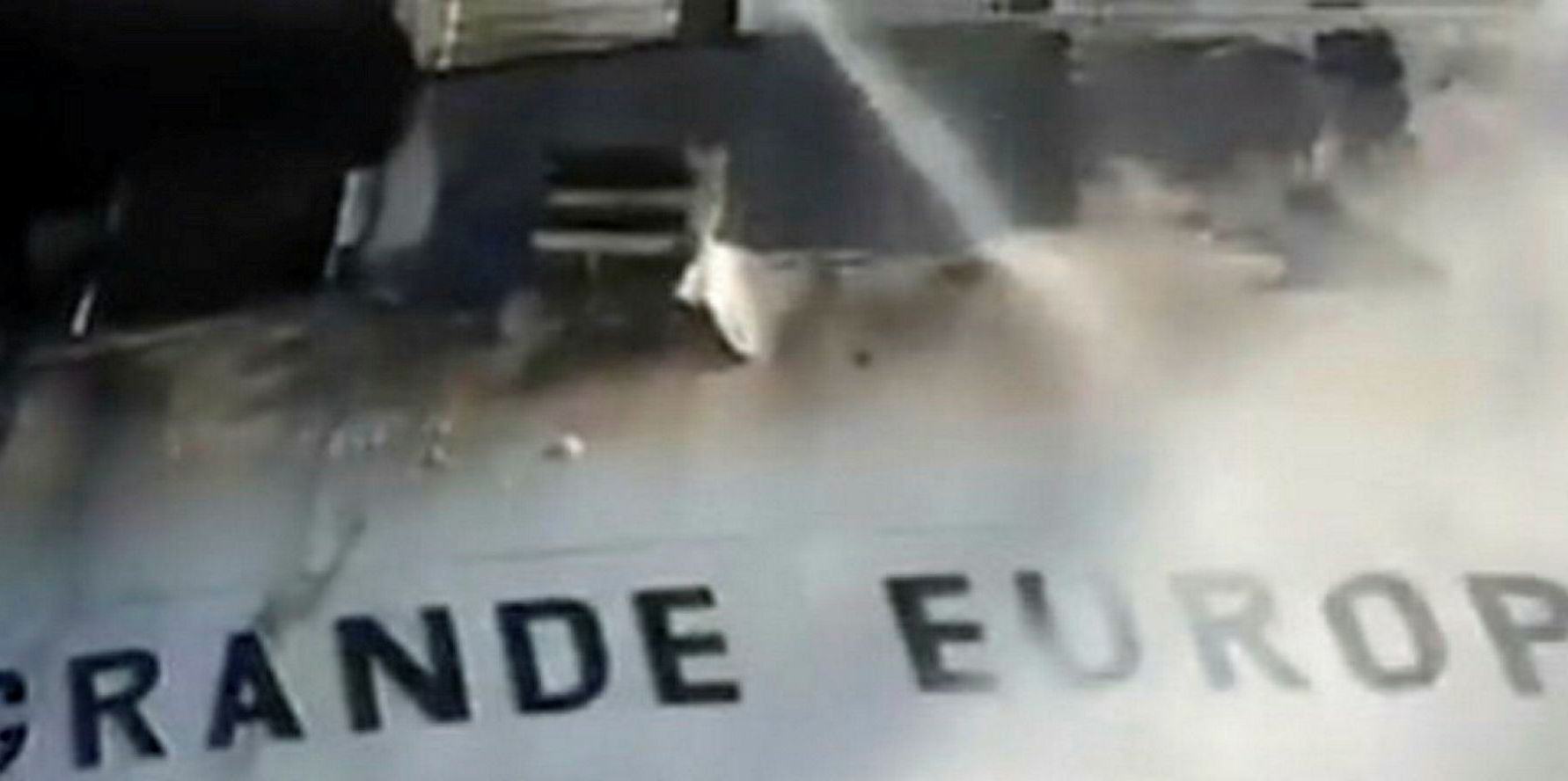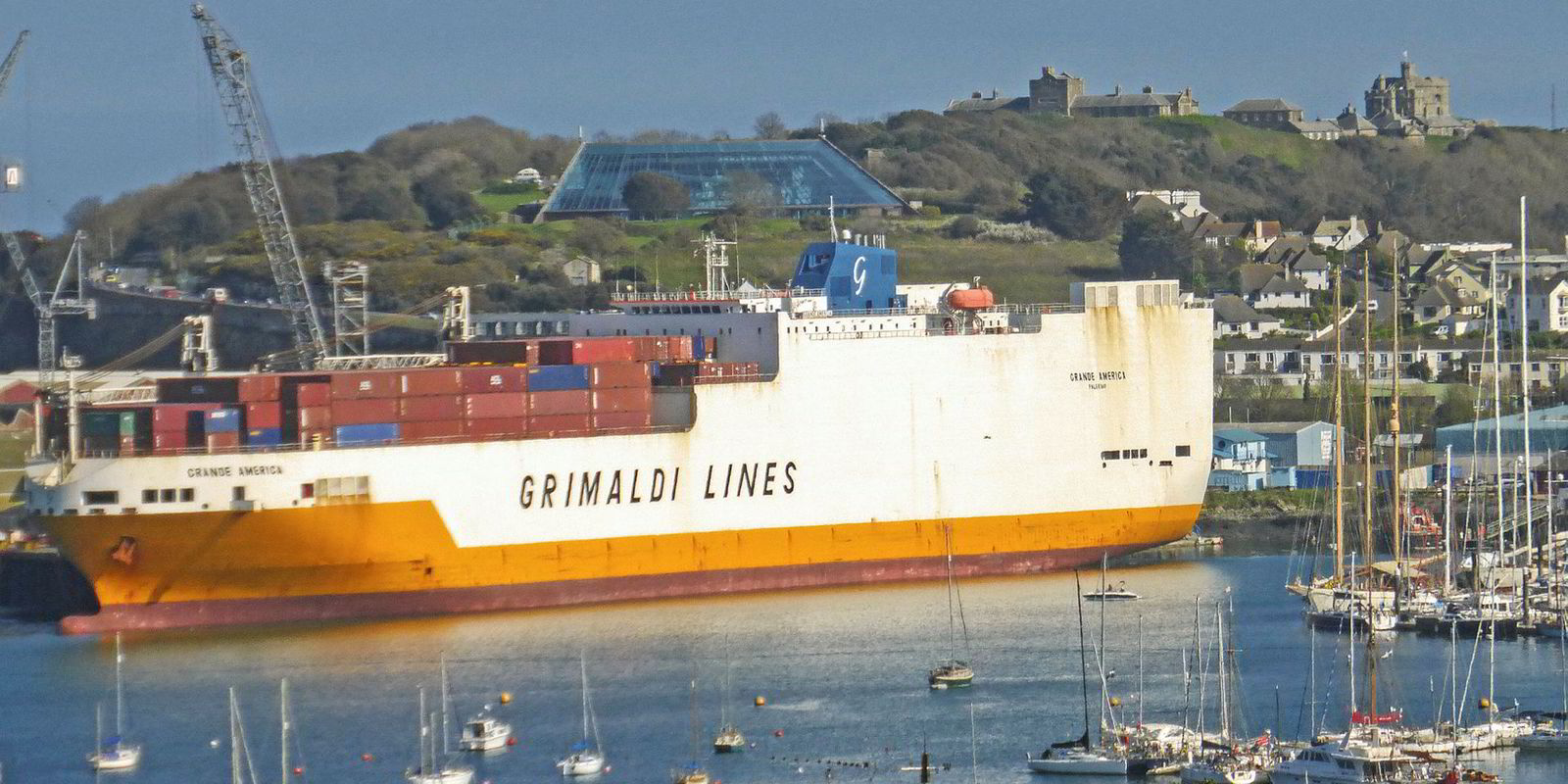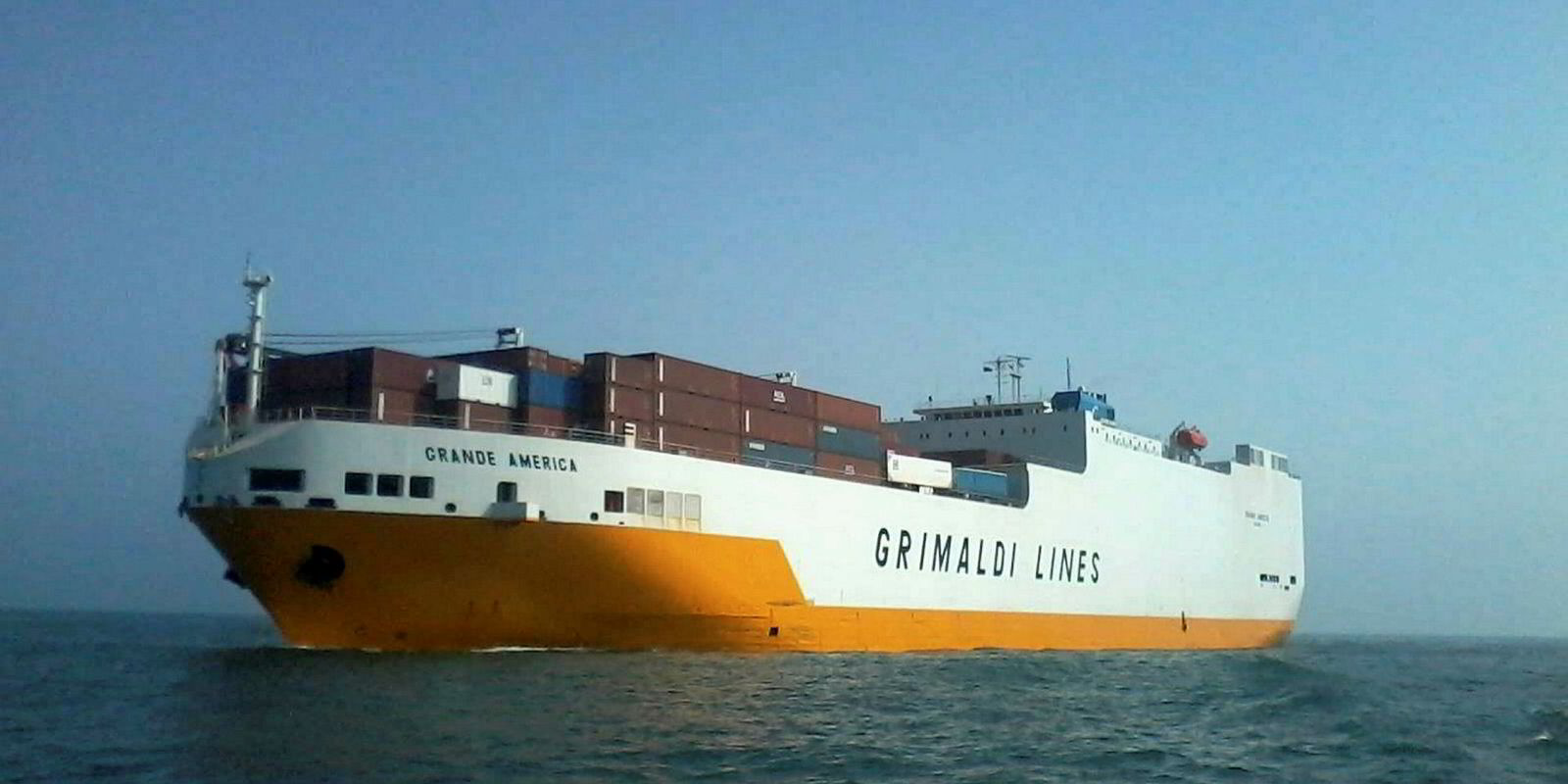The Grimaldi Group said a major blaze on a ro-ro car carrier off the coast of Spain is likely to have been caused by batteries in two new cars onboard, fuelling concerns over the risks posed by cargoes of hybrid and electric vehicles.
The 3,320-lane-metre Grande Europa (built 1998) caught fire 40 kilometres (25 miles) off Palma de Majorca on 13 May with 1,843 vehicles onboard.
The flames were quickly put out and the crew made safe.
In the wake of the blaze, the Italian shipowner said: “Preliminary investigations of the Grimaldi Group suggest that the two fires started from two different new vehicles stowed onboard, and then spread to the other nearby units.”
Short circuits
Grimaldi has also called for “more controls on car batteries which often cause short circuits onboard vessels and as well as in port terminals”.
Although it did not cite the Grimaldi Europa incident, its proposal suggests it believes batteries caused the fire.
Grimaldi declined to comment on the type or make of cars involved.
The call for greater regulation came as car carrier sources told TradeWinds that operators have concerns following a series of fires onboard ro-ros and at car terminals, thought to have been sparked by lithium-ion batteries.
Operators fear that increasing transportation volumes of electric and hybrid cars will lead to more fires unless the regulator acts.
Car trouble
Although ro-ro fires are more commonly linked to secondhand cars, trucks and trailers, two blazes in recent months were onboard vessels carrying new cars.
In January, the 6,400-ceu Sincerity Ace (built 2009) suffered a major fire off the coast of Hawaii while carrying 3,500 Nissan cars from Japan to the US.
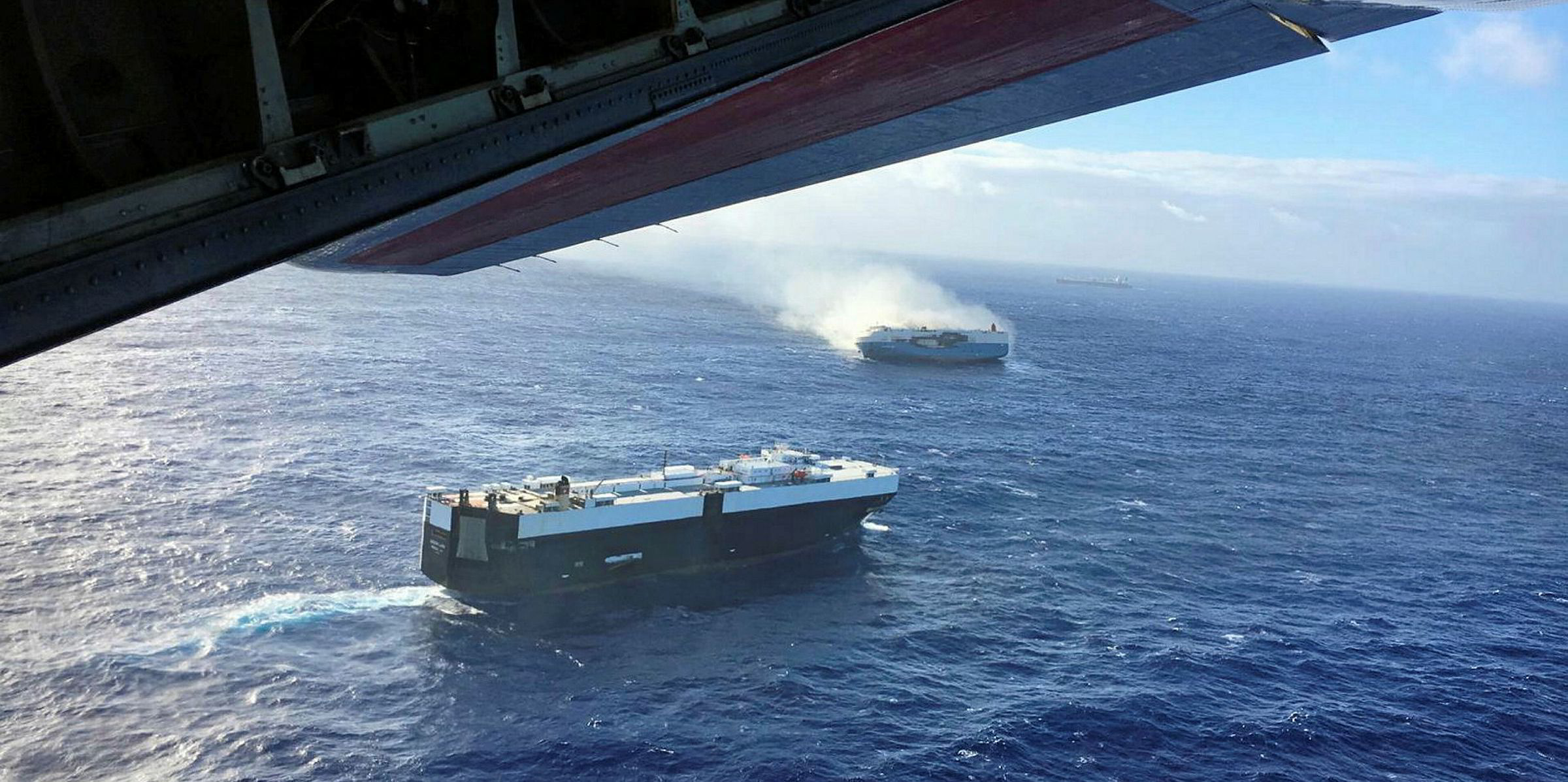
While in March, another Grimaldi vessel, the 56,642-gt ro-ro containership Grande America (built 1997), caught fire and sank off the coast of France with a cargo of Porsche cars.
However, on that occasion, the fire was linked to deck containers holding hazardous cargoes, rather than the vehicles.
Hazardous waste
The Grande America sank because fire extinguishing water caused the free surface effect that, combined with shifting cargo, resulted in the vessel going into a list from which it could not recover.
In the wake of the incident, Grimaldi asked the IMO to make it mandatory for containerised cargoes to be certified as being safely stowed by a classification society.
“The IMO is urged to make mandatory the certification by a classification society of the correct stuffing of containers carrying dangerous goods,” Grimaldi said.
